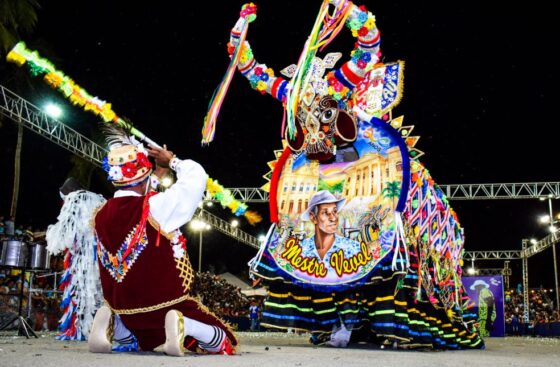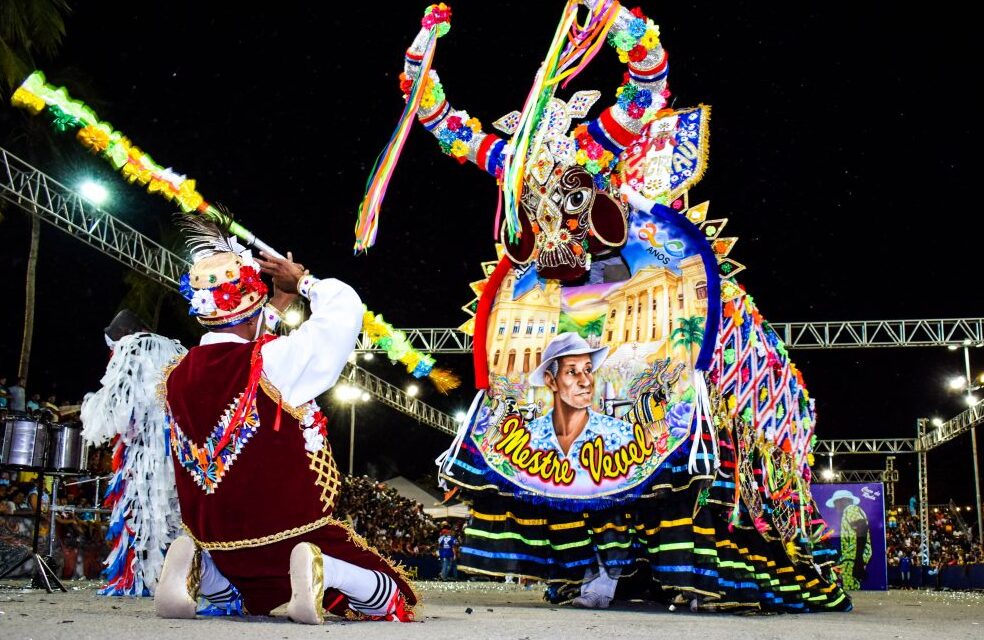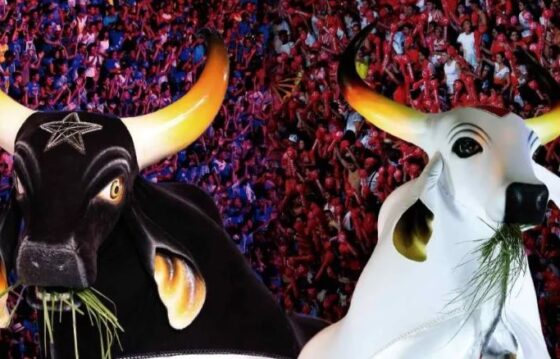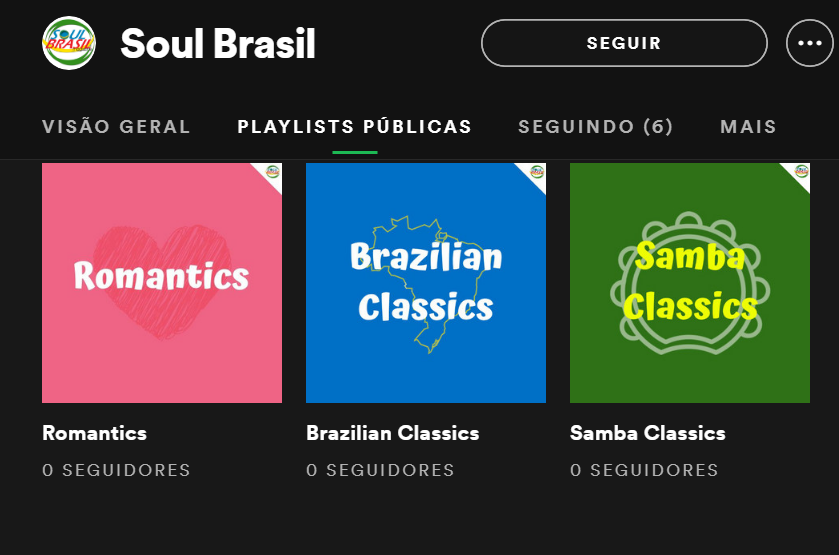 Bumba Meu Boi is an interactive play celebrated in the land of samba and originated in the 18th Century to evolve into a nationwide festival. It is a form of social criticism. Lower class Brazilians mock and criticize those of higher social status through a comedic folklore story told in song and dance. Though not as well known internationally as “Carnaval” and other Brazilian festivals, it is older and deeply rooted in the culture of Brazil.
Bumba Meu Boi is an interactive play celebrated in the land of samba and originated in the 18th Century to evolve into a nationwide festival. It is a form of social criticism. Lower class Brazilians mock and criticize those of higher social status through a comedic folklore story told in song and dance. Though not as well known internationally as “Carnaval” and other Brazilian festivals, it is older and deeply rooted in the culture of Brazil.
The tale can vary depending on the region and social setting at which it is practiced. However, its essential theme remains the same, with a focus on the death and resurrection of a bull. The principal figures include a bull, a white master (Cavalo Marinho), a black pregnant woman (Catirina), a Vaqueiro or cowboy (Mateus), a priest, and a doctor.
The audience is also a key component of the performance, as passionate responses from spectators provide a hectic atmosphere. Additionally, performers are known to become playfully physical with the audience, though with large consumptions of Cachaça (Brazilian rum).
One of brazil’s most important traditions
Bumba Meu Boi is separated into traditional and modern practices. However, only the traditional forms can be found throughout the country. Both versions can be seen in Brazil from the 13th to the 29th of June, as well as from December 25th (Christmas) to January 6. These days, its variations and the Brazilians that celebrate it can be sorted into two main categories of people. There are those who continue to celebrate the festival in its traditional forms, which mainly live in northern, northeastern, and Amazonia cities and villages, and in the state of Maranhão, though it also exists in central regions as well.
These forms of the festival still maintain a large focus on the rebellious features of the play towards the upper class, providing Brazil’s lower class with a strong cultural connection to Brazil’s past. Then there are those who embrace its modern form, which is more constantly altering to modern trends and is aroused by the media. These forms of the festival allow Brazilians to embrace the more current, festive cultures of Brazil. Rationally, this form exists in more populated, modernized cities such as Rio, and is perceived by traditionalist to have lost the meaning of the celebration
Seven years after receiving the title of Cultural Heritage of Brazil (2011), the Bumba-Meu-Boi Cultural Complex, one of the most outstanding cultural manifestations of the state of Maranhão, is poised to receive international recognition. On April 5th (2018), the Institute of National Historical and Artistic Heritage (Iphan) presented to the Ministry of Foreign Affairs (MRE) the application dossier for the status of Intangible Cultural Heritage of Humanity. The title is conferred by the United Nations Educational, Scientific and Cultural Organization (Unesco).















